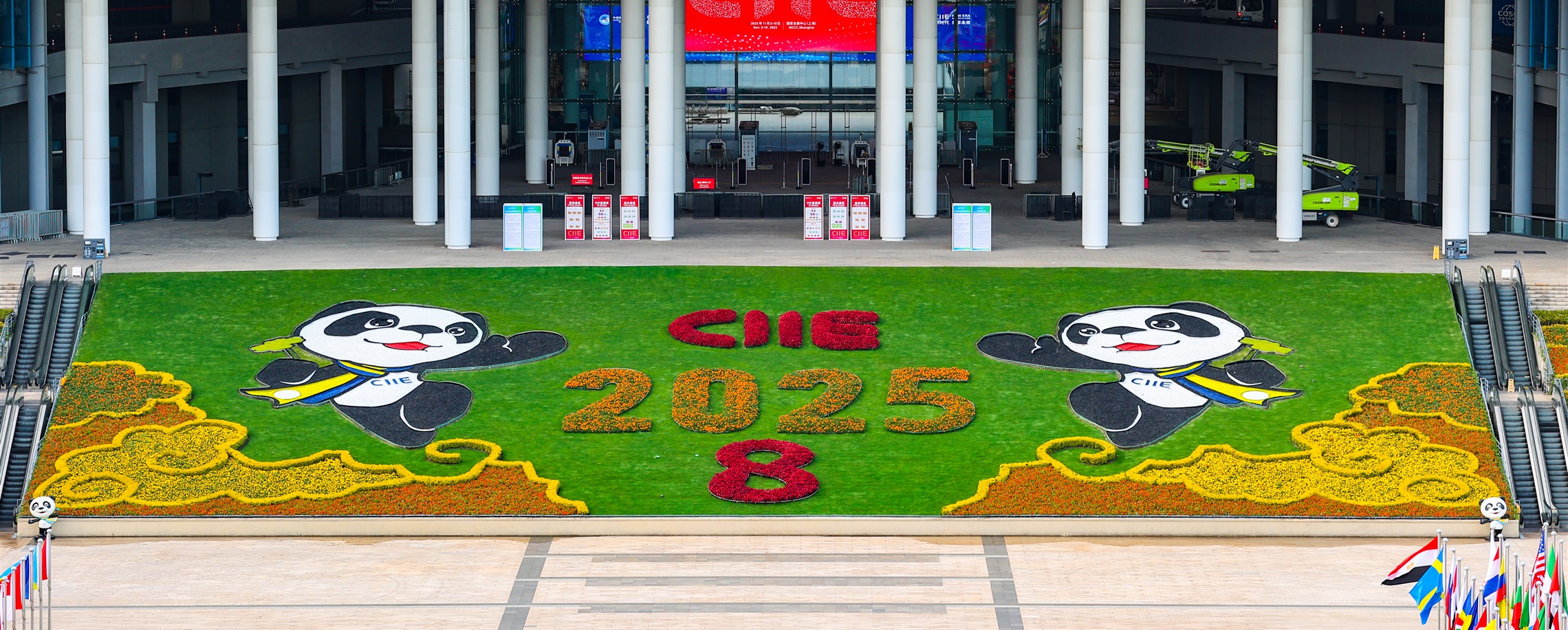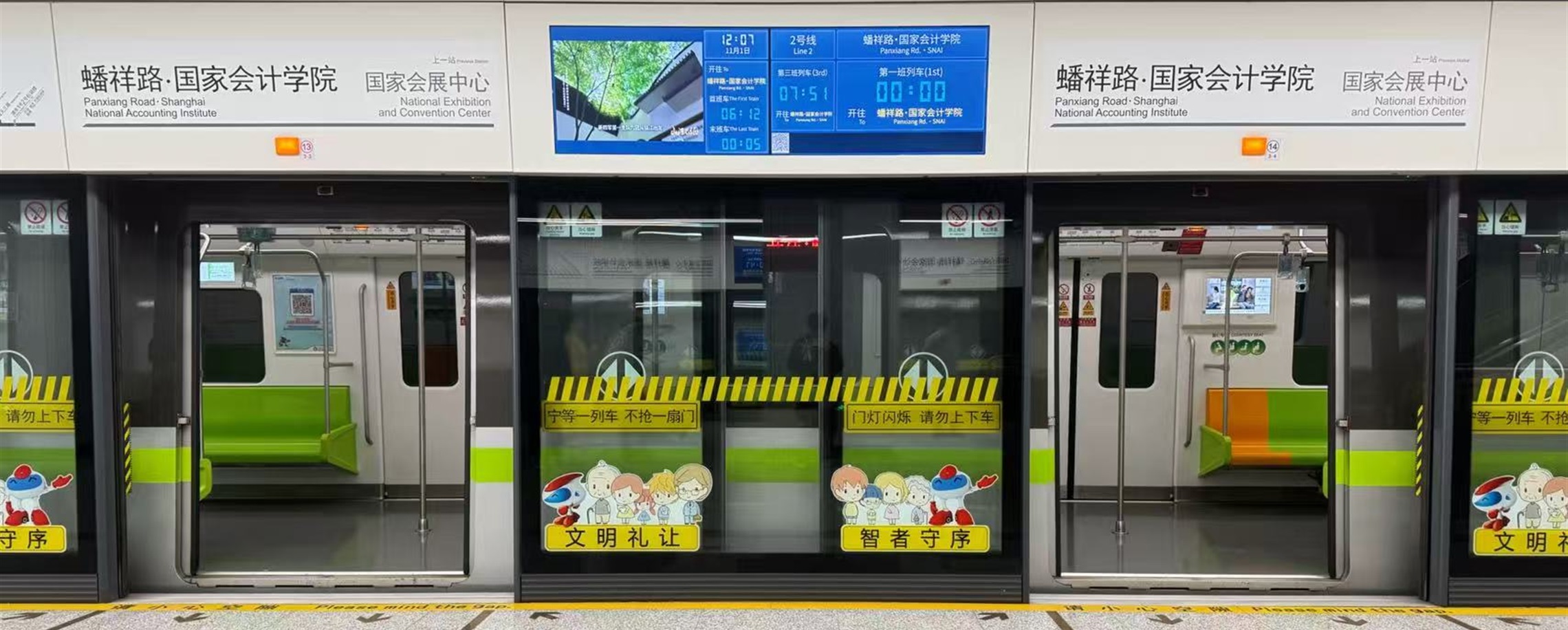Global Rhythms, Shanghai Stage
What happens when an Indian classical musician, trained in the intricate language of centuries-old ragas, joins forces with Chinese and international artists and brings the shimmering sound of the sitar into the mix?
The result is neither classical nor pop but a daring experiment where tradition and innovation meet in real time, creating unexpected harmonies that cross borders and eras.
For the uninitiated, Indian classical music is built on ragas — unwritten melodic frameworks that, unlike Western scales, shape both mood and emotion. Each raga is tied to a time of day or season, evoking joy, serenity or longing, with calm precision. Add the pulse of jazz, folk-rock, flamenco or even live coding, and the music shifts gears — looping, morphing and reinventing itself. Purists might wince, but for the artists, it remains an exercise in creation, discovery and dialog.
Legendary sitarist Ravi Shankar collaborated with violinist Yehudi Menuhin and jazz saxophonist John Coltrane, while Ananda Shankar once jammed with Jimi Hendrix. Later, guitarist John McLaughlin and tabla maestro Zakir Hussain formed the band Shakti, blending ragas with jazz and rock — a collaboration that won the 2024 Grammy for Best Global Music Album.
Now, Shanghai will get its own taste of this boundary-crossing experiment when Indian sitarist Dr Murchana Adhikary Barthakur joins forces with a group of local and international musicians curated by Chinese tabla player Chen Min, better known as Mandy Chen, to conjure a night of musical magic.
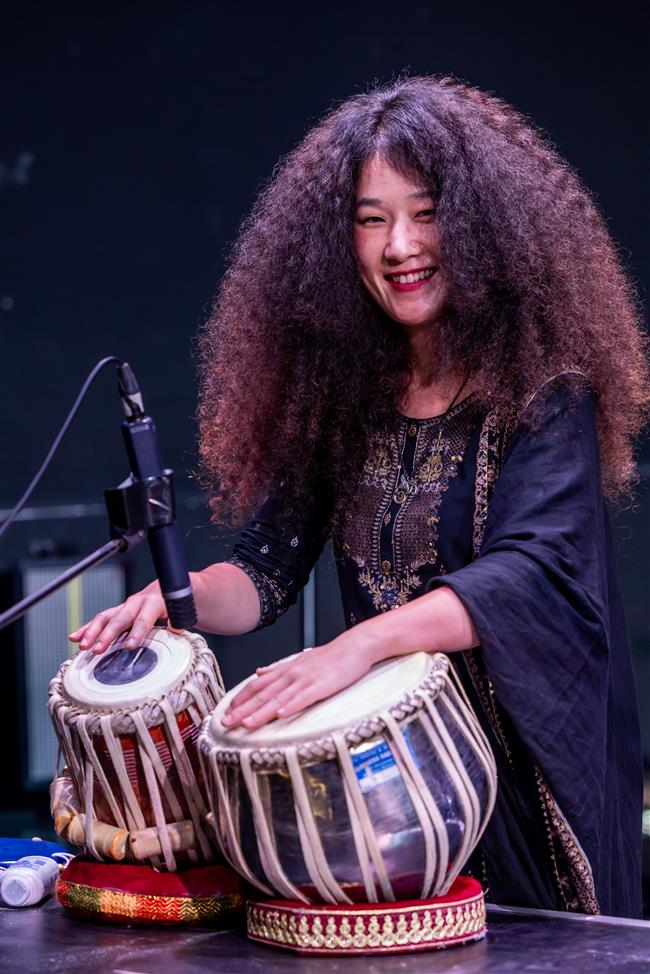
Chen hit upon the Indian percussion, or the tabla, by chance.
“I stumbled upon a duet album by Zakir Hussain and his father, Alla Rakha,” the Shanghai native says of the two legendary tabla players. “The moment I pressed play, my heartbeat synced with the groove. The tablas spoke in melodic sentences — bright tones, liquid bass and coded syllables. I was spellbound.”
The tabla — twin hand drums that anchor North Indian classical music — became her compass. She began scouring videos, discovering its reputation as “the world’s most difficult drum.” Curiosity turned to calling.
“Listening was no longer enough; I wanted to learn its language,” Chen says.
That desire led her to India, where she discovered the tabla “was played everywhere, including in the temples.”
“I realized that if I had to master the instrument, I needed a real teacher.”
She found her guru, Pandit Subhajyoti Guha, in Kolkata, eastern India, and began years of study that continue to this day.
Her new project — part study, part performance — was born out of musical necessity.
“I’m still a student of tabla,” she says. “But in China, it’s difficult to find spaces to apply what I’ve learned. You need the oxygen of live ragas and real exchange. So I thought: ‘Why not bring a teacher-like musician from India who can practice with me here?’”
At her guru’s suggestion, Chen reached out to Murchana, who holds a doctorate in music and spent five years in Afghanistan teaching sitar and sarod at the Afghanistan National Institute of Music.
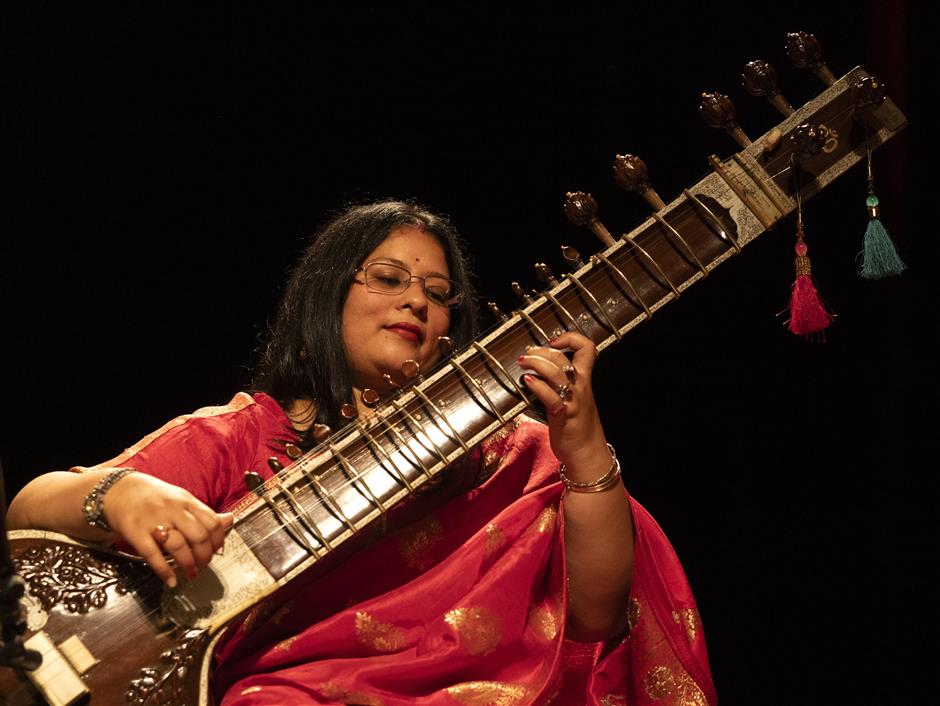
“I’m happy to join Mandy, who will be on the tabla for the first time, and the local musicians,” Murchana tells Shanghai Daily. “My goal is to make Indian classical music approachable and exciting — and to build a bridge in the artistic fabric between India and China.”
Chen found strong support from her peers for her initiative.
One of the musicians to join Murchana and Chen on the stage will be New York-born Alec Haavik, a respected jazz saxophonist and composer.
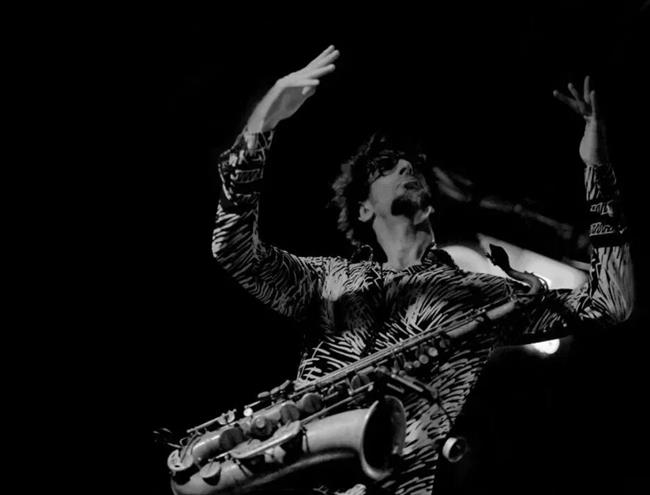
“Indian music and jazz share a common language,” Haavik says. “Both are sophisticated art forms of improvised music, developed largely through an aural tradition — though of course, Indian music continues to remain more so within that aural tradition, while jazz has long embraced a close relationship with written notation.
“I’ll be sketching notations to find my way into this beautiful system — but I’ll also rely on instinct, the jazz improviser’s muscle.”
He is looking forward to performing “Raga Puriya Kalyan in Jhaptaal” — a raga in a 10-beat cycle — blending it with the fluid energy of jazz.
Alongside Murchana, Chen and Haavik, the China tour line-up is a “who’s who” of the local music scene: flamenco guitarists Kaysar and Turghun, bassist Fred Grenade, pianist-composer James Cowan, drummers Wu Zhenbang and Leo Liao Peng, synth artist Cyan Pac, and live coder James Harkins, who will shape sound in real time.
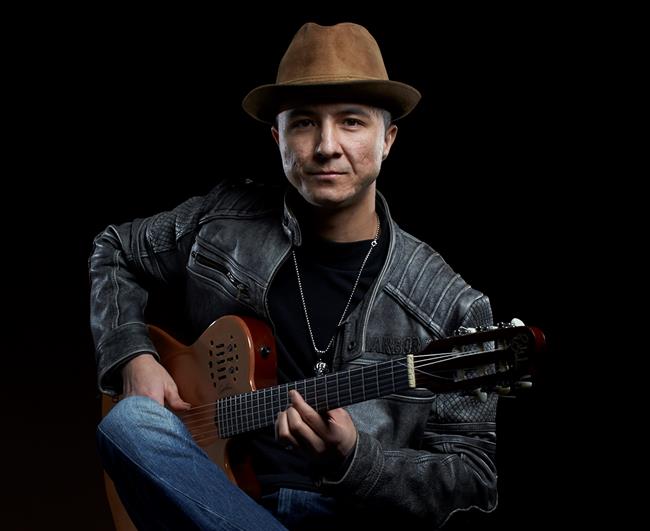
Kaysar, trained in the Xinjiang Uygur Autonomous Region and Shanghai, sees every fusion as “both opportunity and challenge.”
“The magic lies in weaving ideas from different cultures into something that feels effortless — something that breathes beauty,” says Kaysar, who leads his own band, Roman.
Even in this sonic diversity, there is structure.
“Before a performance, we agree on the raga — its scale, its emotion,” says Kaysar. “With these foundations in place, we can then weave in additional elements that suit the piece’s melodic skeleton. As the melody shifts and the emotional narrative evolves, we will introduce our own musical ideas, enriching the music while keeping it coherent and beautiful.”
Composer Harkins, from the United States, will use live coding to shape the electronic soundscape: “When the music peaks, I ease the rhythm, drop the pitch, soften the filters — it’s more fun when it’s not pre-planned.”
“I expect my role to be to accompany the sitar’s melodic improvisation. My system is better at texture, so it is better for me to operate in a supporting role,” says Harkins.
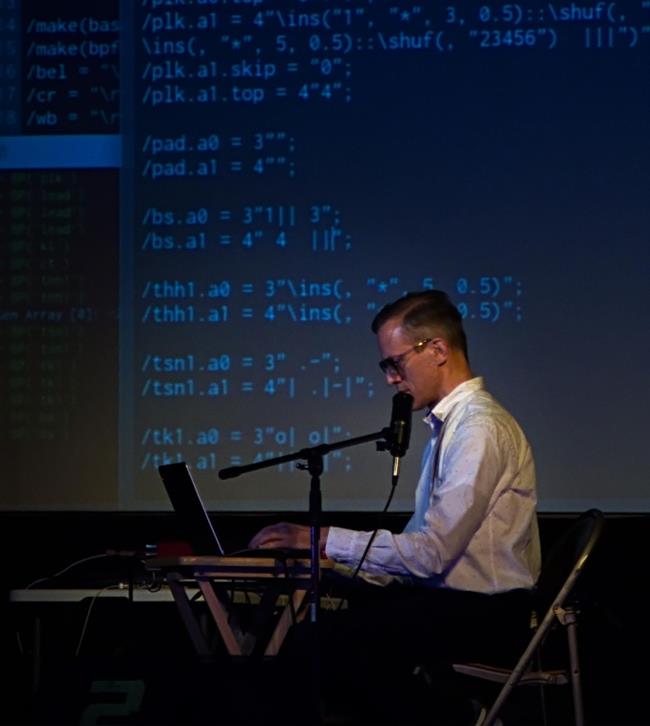
For both Murchana and Chen, it is more than a concert — it’s a dialog.
“I believe these collaborations can spark genuine connections between our audiences,” Chen says.
Murchana, who will be performing in China for the first time, agrees.
“My expectations are not just to perform but to experience a genuine cultural dialog. I expect to find an audience that is perhaps new to the specific structure of a raga but deeply receptive to the emotion and spirituality it conveys.”
As the final notes drift into the Shanghai night, what lingers is more than music — it’s connection. For Chen and Murchana, this project is as much about discovery and dialog as it is about sound, a reminder that when musicians meet, they create something larger than themselves.
Performance info
Date: November 15
Venue: Lincoln Jazz Center, Shanghai
Musicians: Dr Murchana, Mandy Chen, Kaysar and Turghun
Date: November 19
Venue: JZ Club, Shanghai
Musicians: Dr Murchana, Mandy Chen, Alec Haavik, Fred Grenade, James Cowan and Wu Zhenbang
Date: November 23
Venue: JZ Club, Hangzhou
Musicians: Dr Murchana, Mandy Chen and Cyan Pac
Date: November 29
Venue: Enlightening, Guangzhou
Musicians: Dr Murchana, Mandy Chen, James Harkins and Leo Liao Peng
Date: November 30
Venue: Malt House Jazz Club, Nanning
Musicians: Dr Murchana, Mandy Chen, Leo Liao Peng and other jazz musicians





